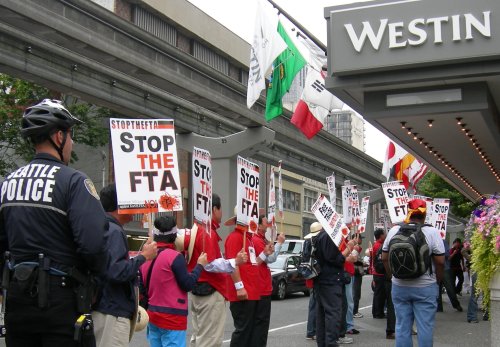Vieuws | 16 June 2016
Seoul prefers ISDS for its investment chapter but could consider ICS
By Naomi Bar
High-level South Korean diplomats have expressed their preference for the old investor-state dispute settlement (ISDS) system over the Investment Court System (ICS) in the framework of a future investment chapter in the EU-South Korea FTA, according to the mission report issued by the European Parliament’s International Trade Committee (INTA).
South Korea’s preference for the old ISDS system was met with “strong objections” by MEPs who, according the mission report, believe that “ICS is the only available and workable model for possible dispute settlement”.
“There were strong objections regarding the Korean request to include ISDS provisions in connection to investment protection provisions,” the report reads. “Investment protection should nevertheless be given thorough consideration,” it adds.
On 16-20 May, an INTA delegation travelled to South Korea to hold discussions with stakeholders, civil society representatives and high-level diplomats, including the Deputy Minister for Trade Negotiations Kim Hak-do. During the meetings, the ongoing implementation of the EU-South Korea FTA was described as a “success story.” However, the delegation and the South Korean officials’ common understanding was for an investment chapter to be added to the existing FTA.
The agreement, signed in Brussels on 6 October 2010, does not include provisions on investment protection as it was negotiated before the EU gained this competence following the Lisbon Treaty.
Deputy Minister Hak-do, described in the mission report as “traditionally a strong supporter of the Investor-State Dispute Settlement (ISDS) system” expressed, however, “his openness to consider the new EU model for an Investment Court System (ICS),” which could “replace the 22 Bilateral Investment Treaties (BITs)” currently in place between South Korea and individual EU member states.
At the INTA Committee meeting on 15 June, Bernd Lange (S&D, Germany), Chairman of the INTA Committee admitted that the process of obtaining a reviewed agreement “will be a challenge”.
In parallel, the Commission wants to “adjust” several provisions of the agreement to “improve its functioning.” The planned changes will, according to sources, cover inter alia provisions related to goods re-entering South Korea after repair. The EU wants them to be exempted from duties.
Adam Szejnfeld (EPP, Poland), INTA’s standing rapporteur for South Korea, laid out a detailed time plan for a non-legislative report on the revision of the treaty, to be voted on by the European Parliament by the end of the year.
“On 13-14 July we will have an exchange of ideas in this Committee on 12-13 October, the report will be presented and considered in this Committee. Furthermore, we will have a vote during the INTA Committee meeting on 28-29 November and the final step – the plenary vote on 12-15 December,” he told the INTA meeting.
The European Commission has already launched “informal” discussions with South Korea on the revision of the current agreement (see article).
Background
The free trade agreement between the EU and South Koreaentered into force on 13 December 2015. Under the agreement, as of 1 July 2016, import duties will be eliminated on all goods except on a limited number of agricultural products.
South Korea is the EU’s tenth largest export destination. The EU is South Korea’s fourth export destination (after China, Japan and the US). In 2013, the EU’s exports of goods to South Korea amounted to €40 billion, whereas imports from South Korea totalled €35.8 billion.



